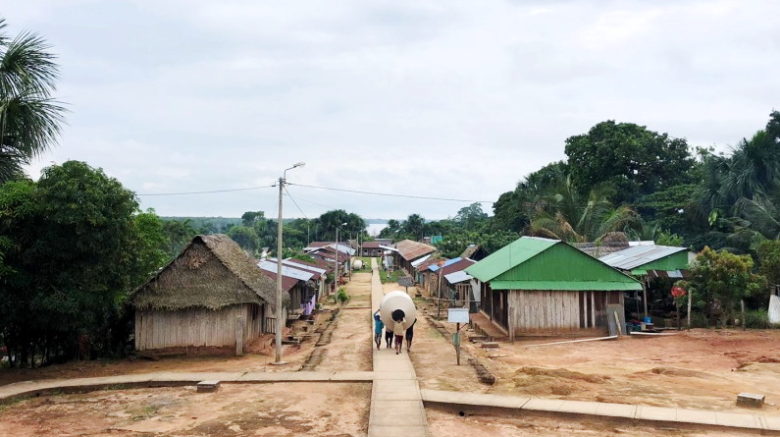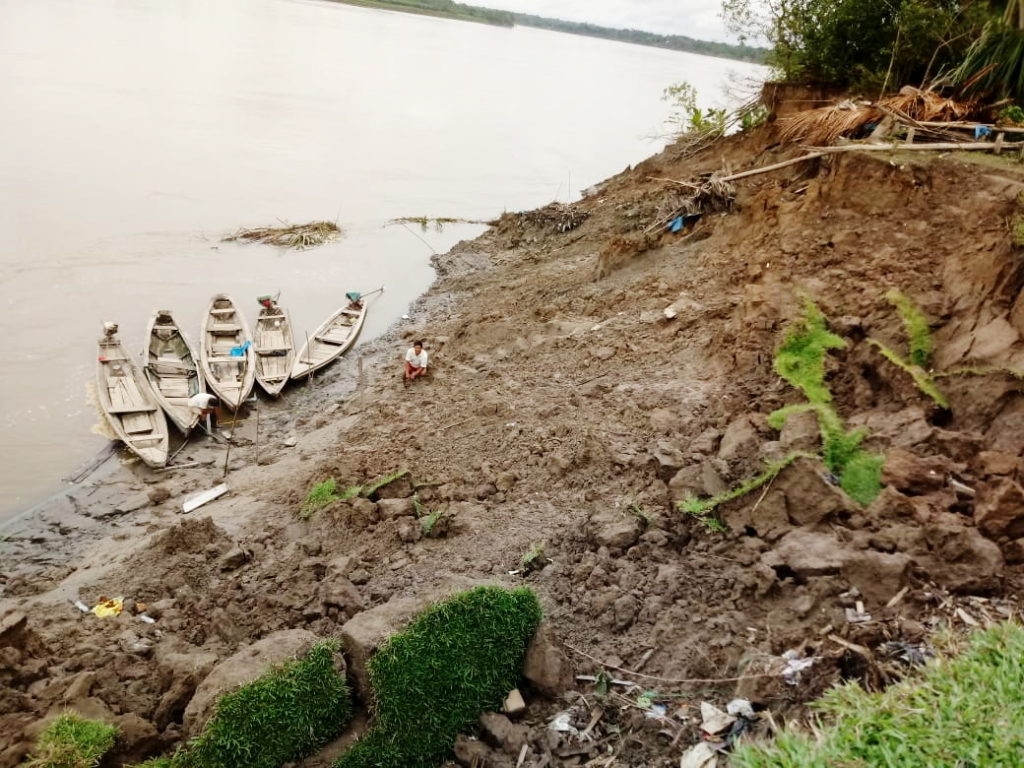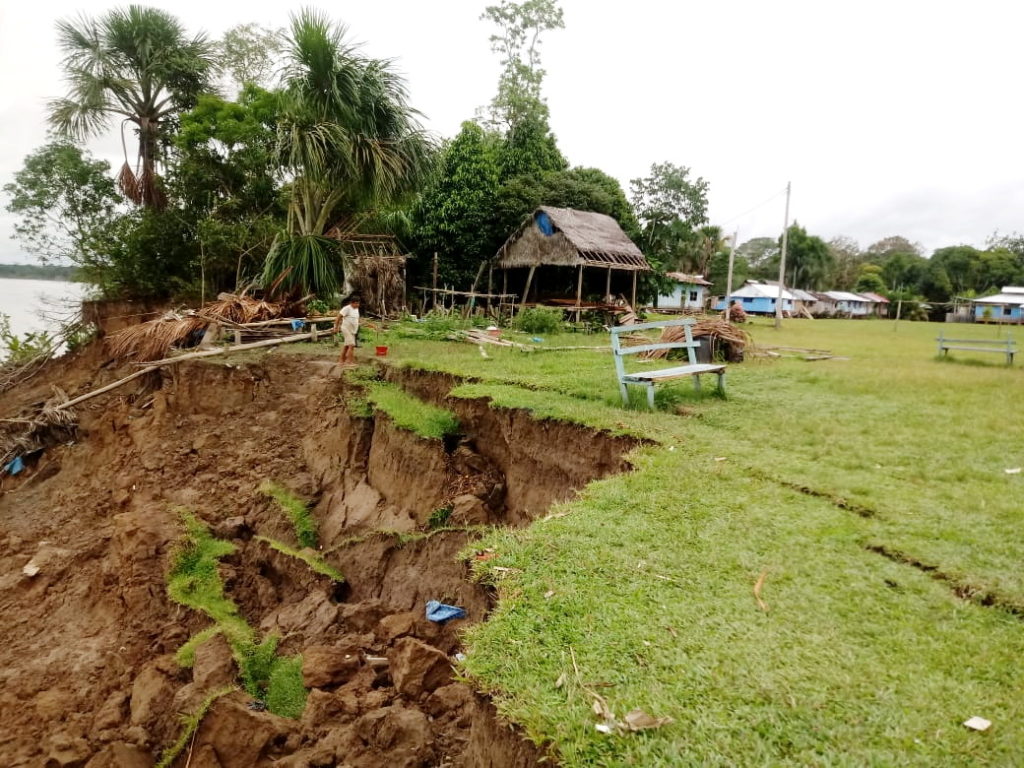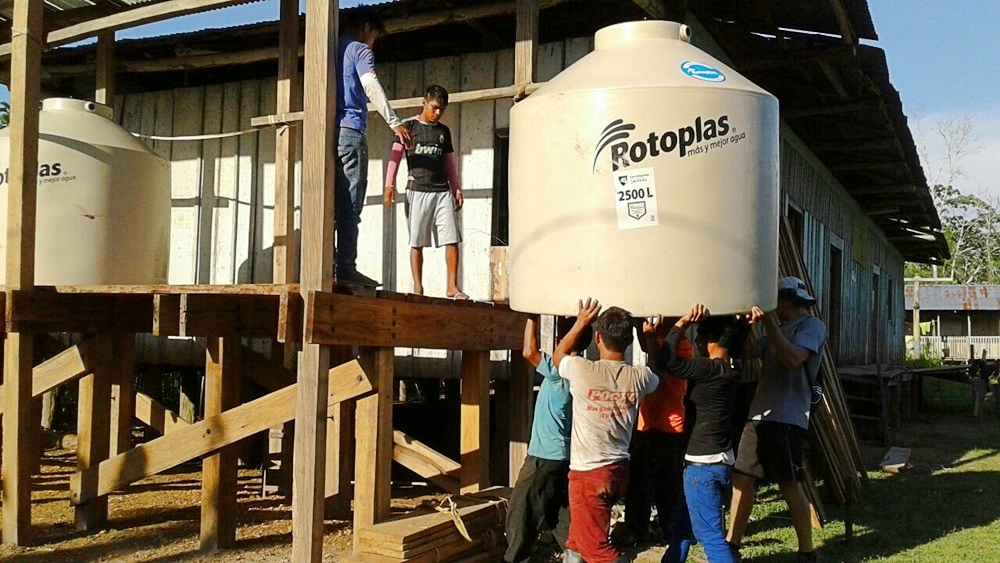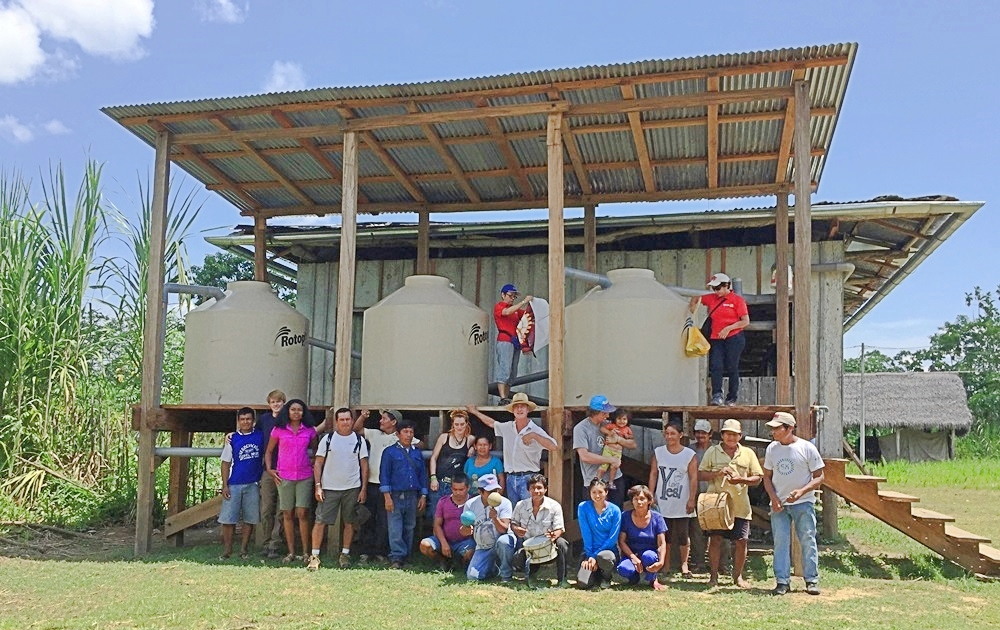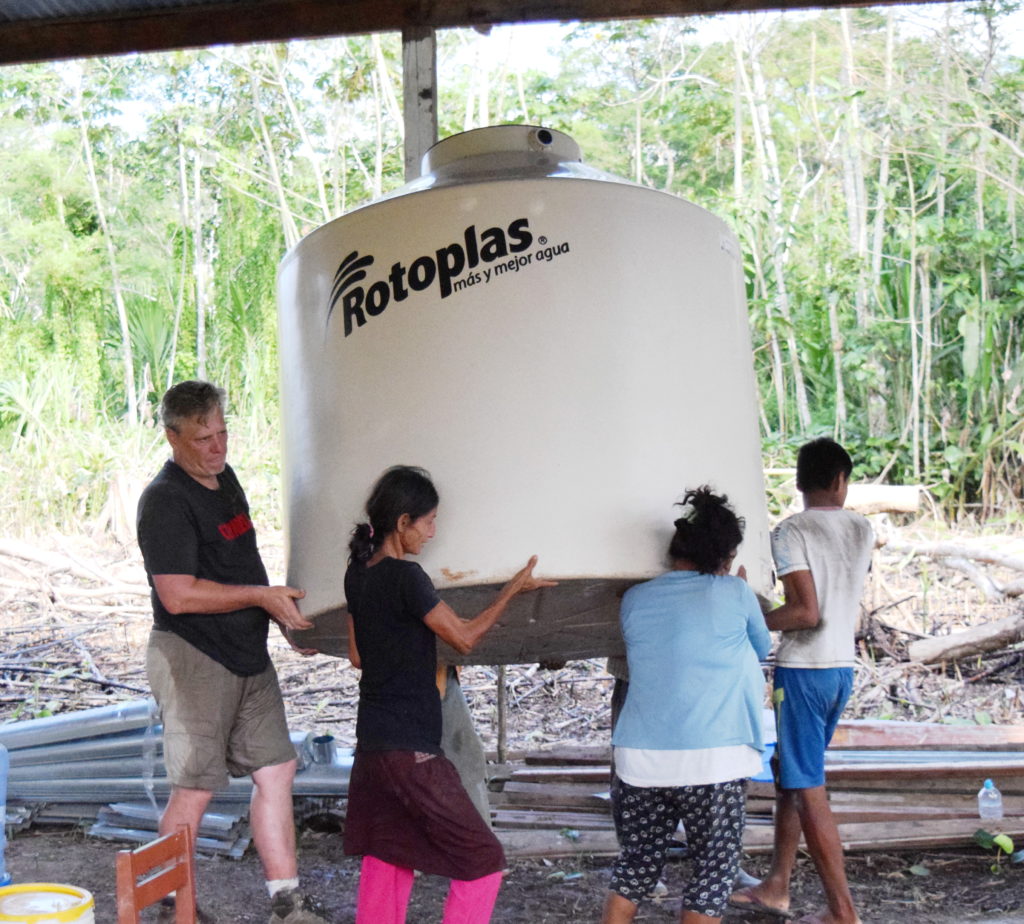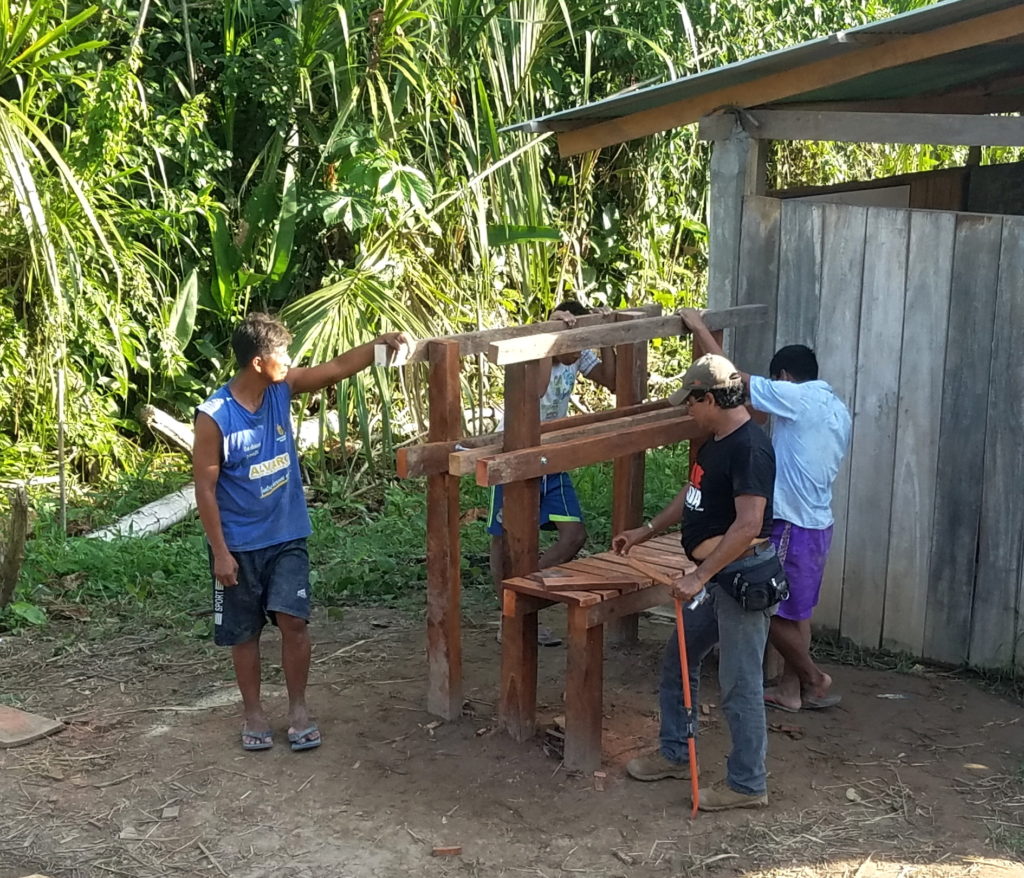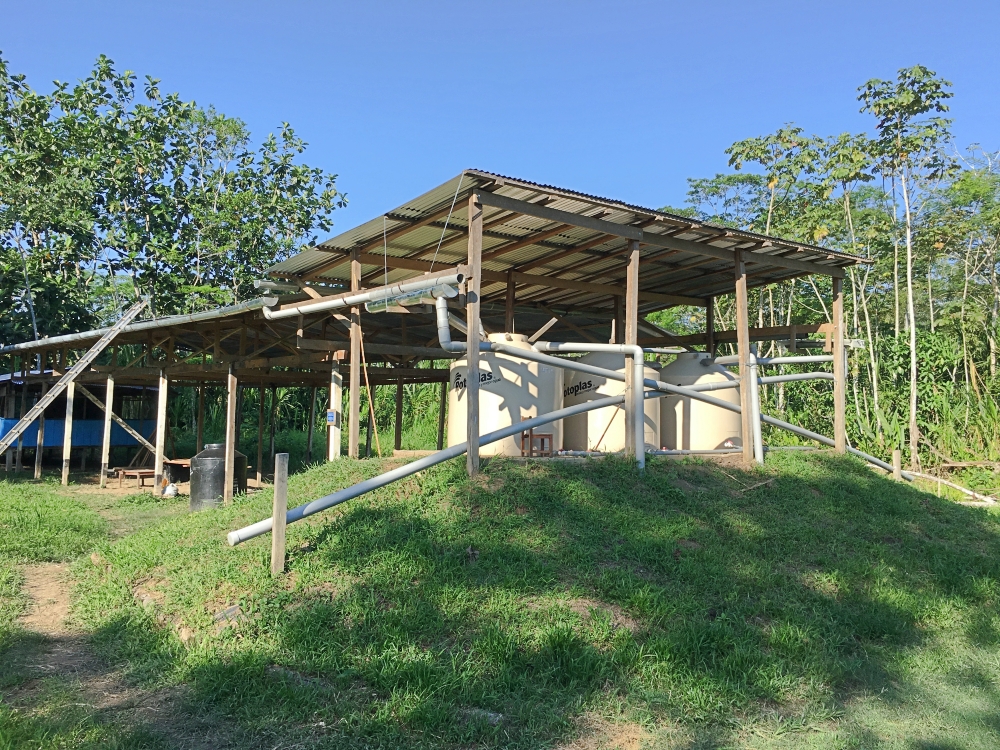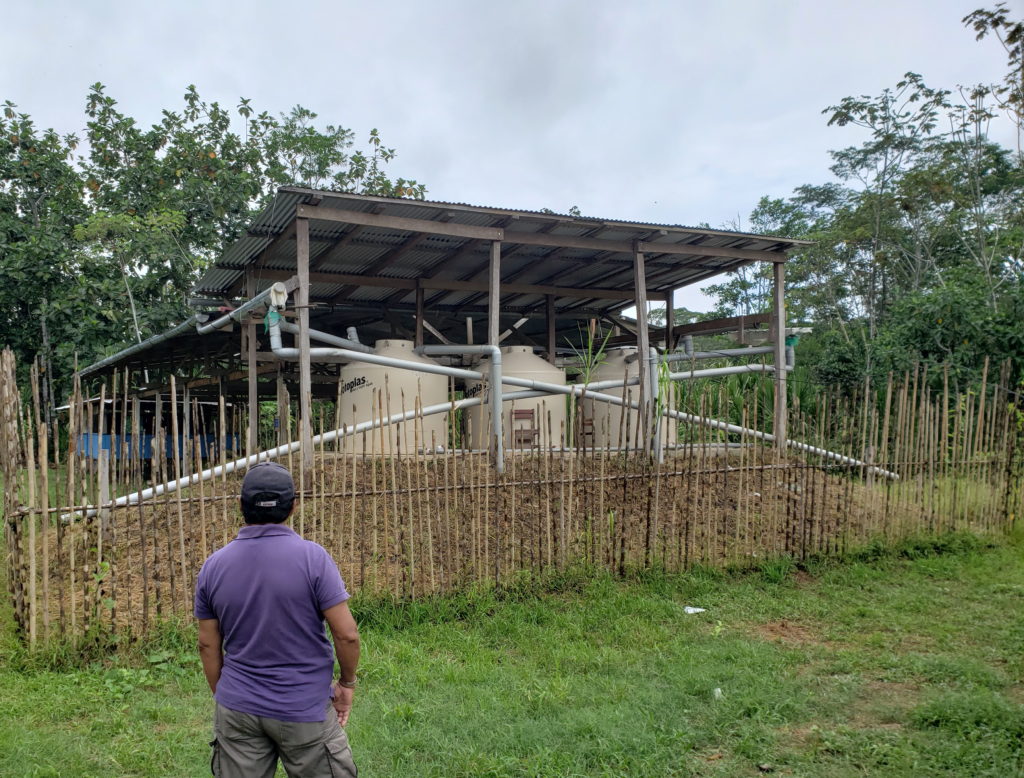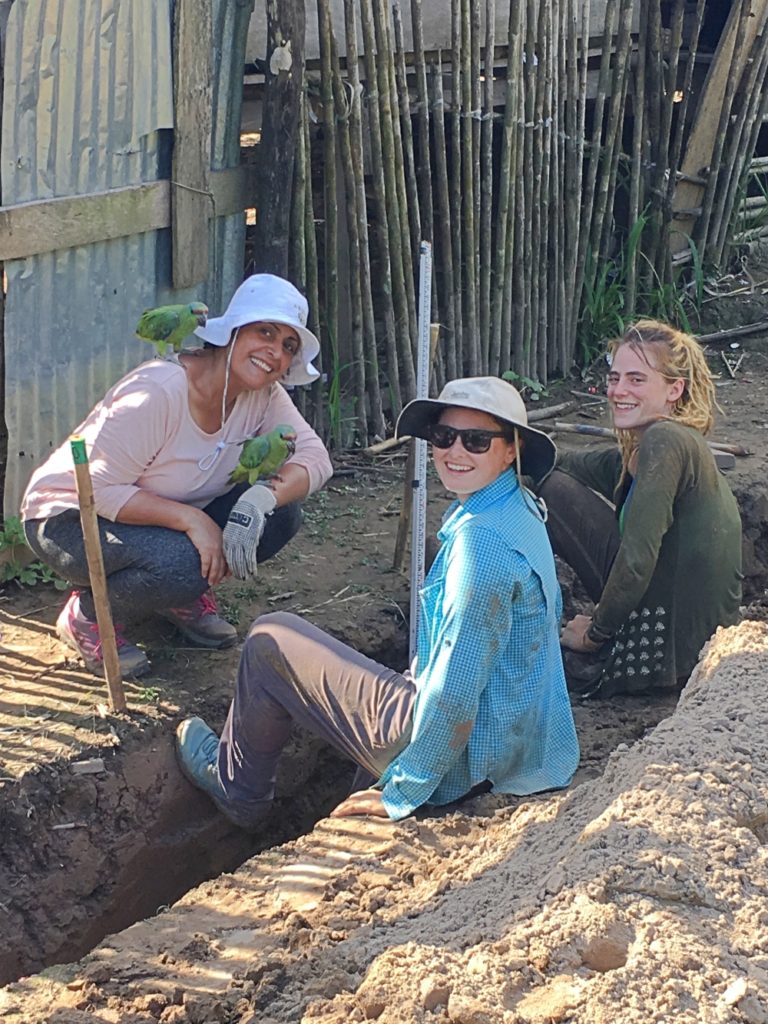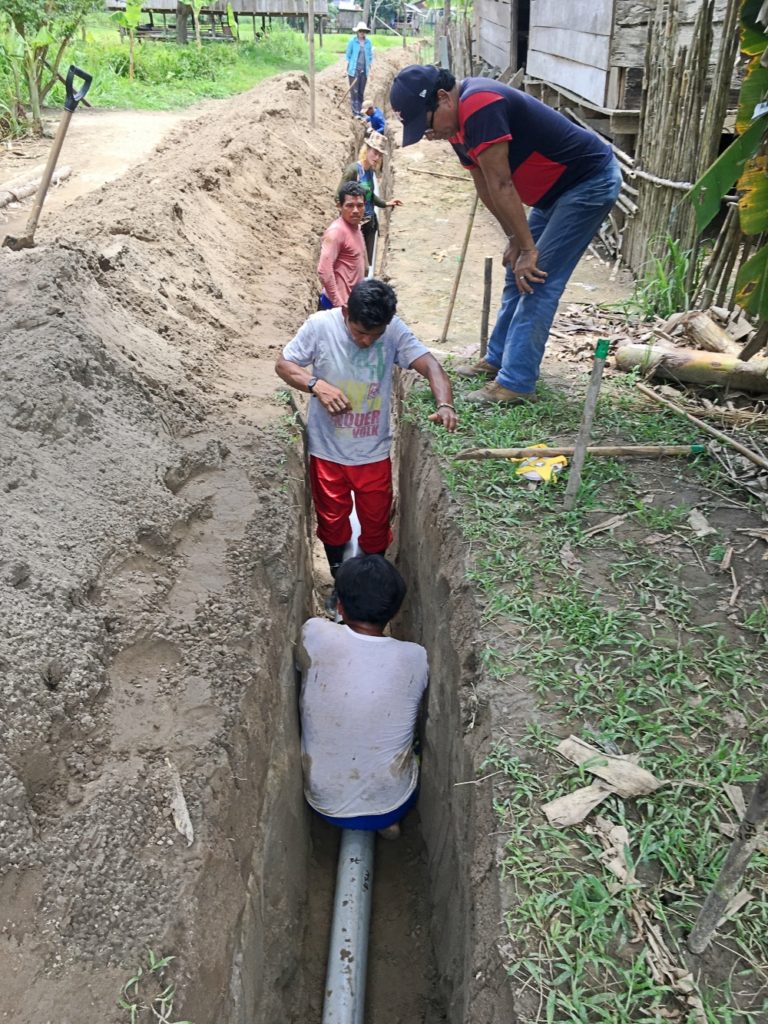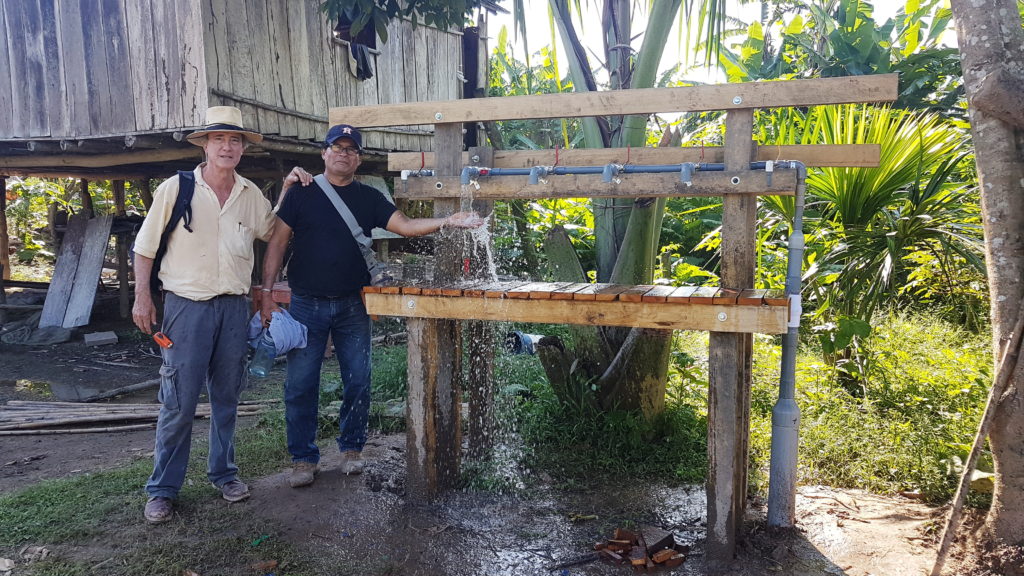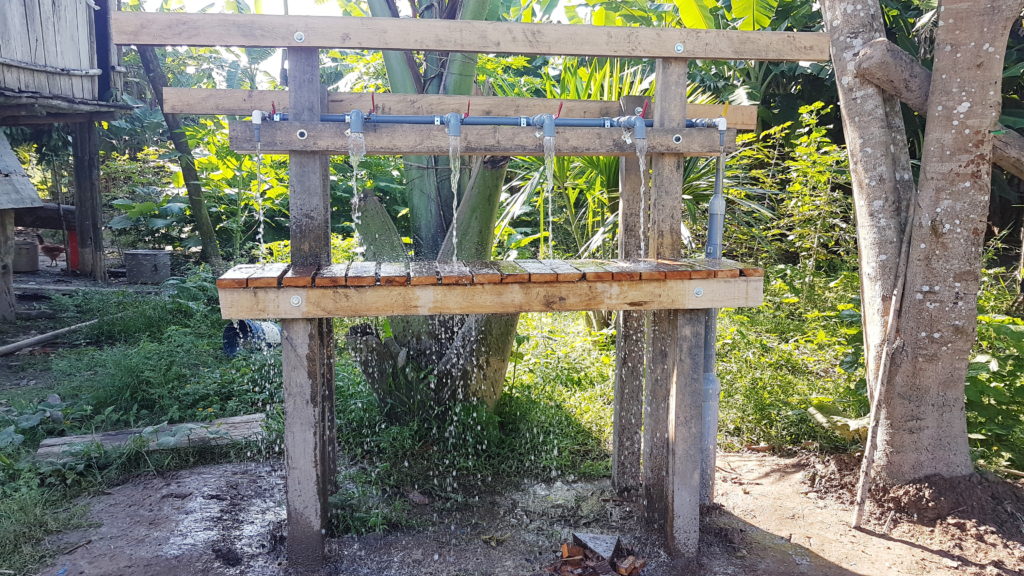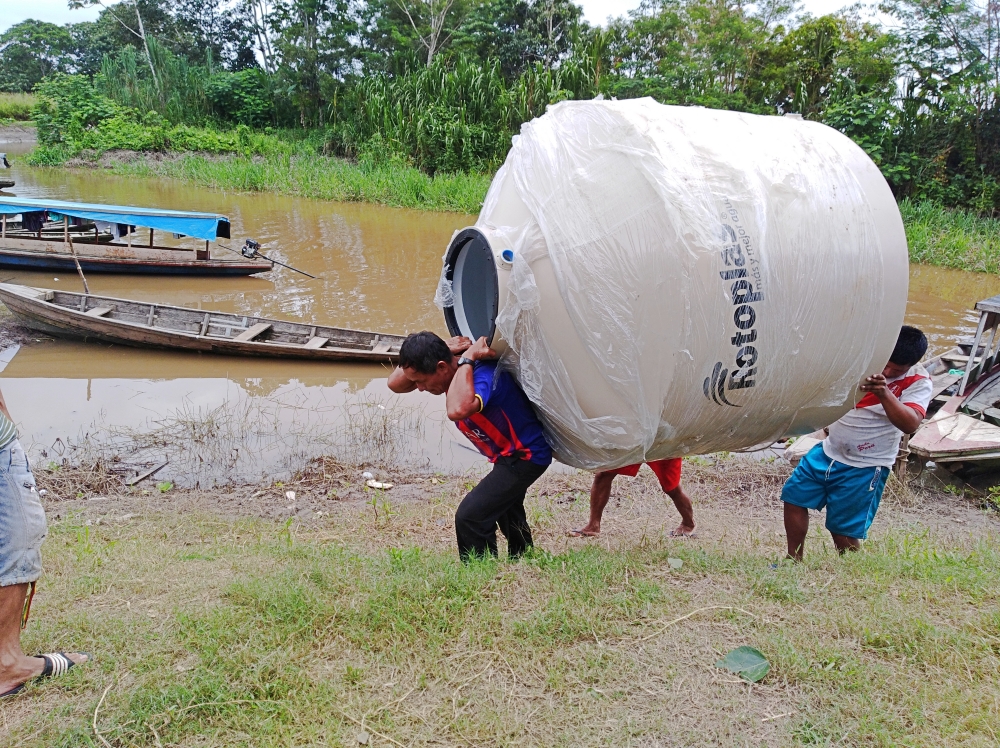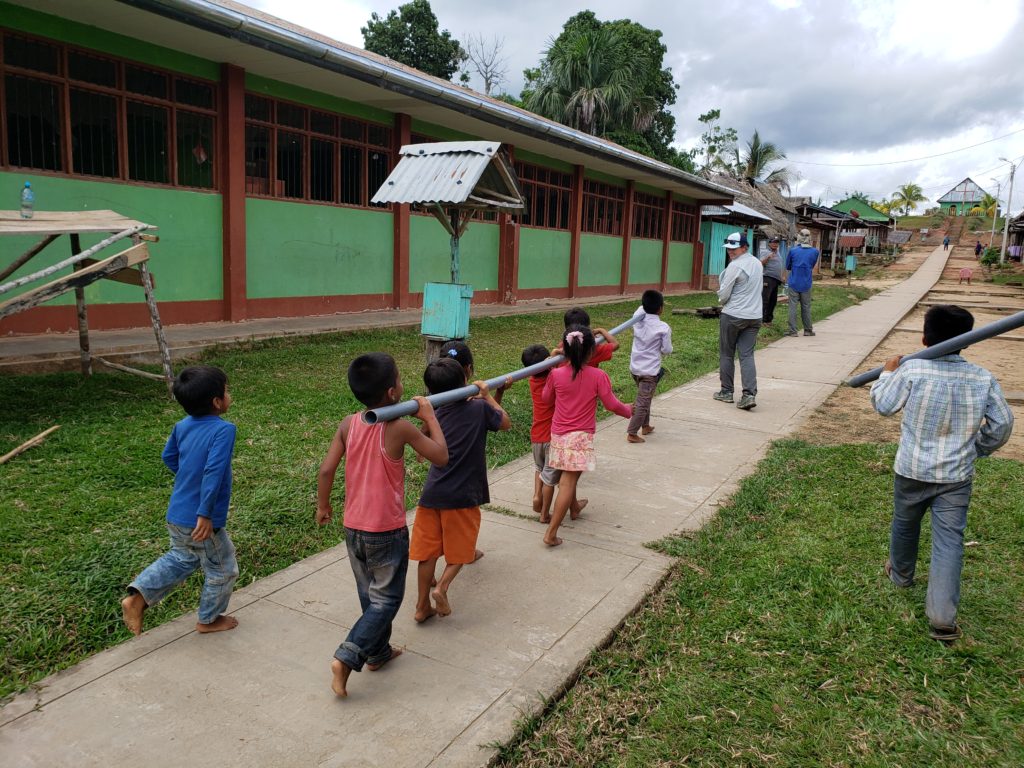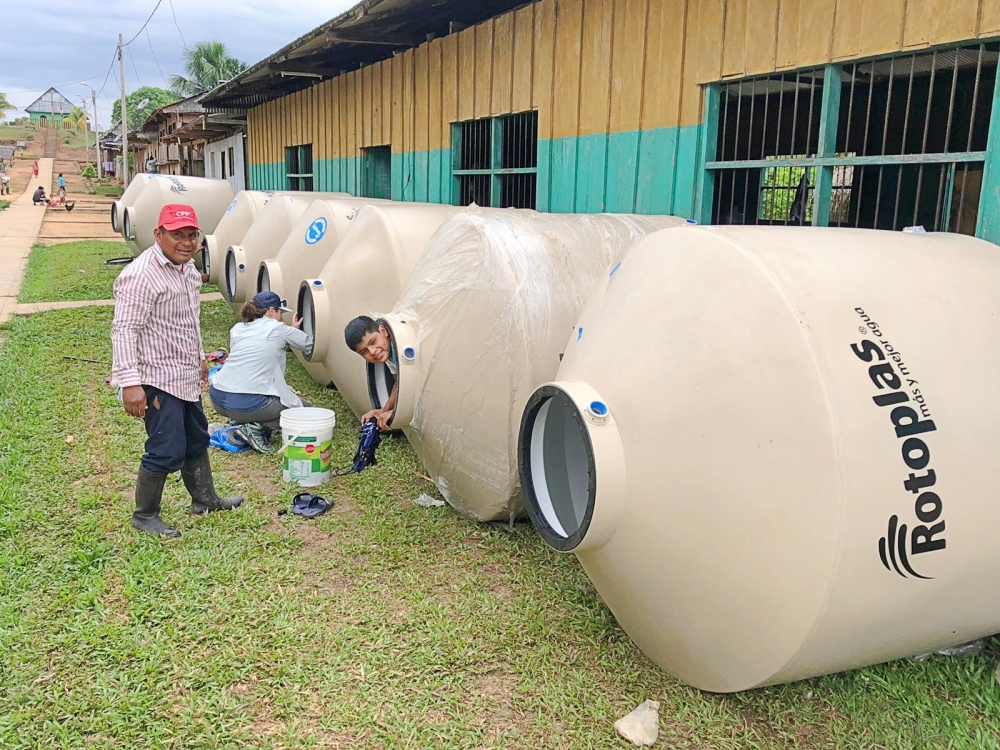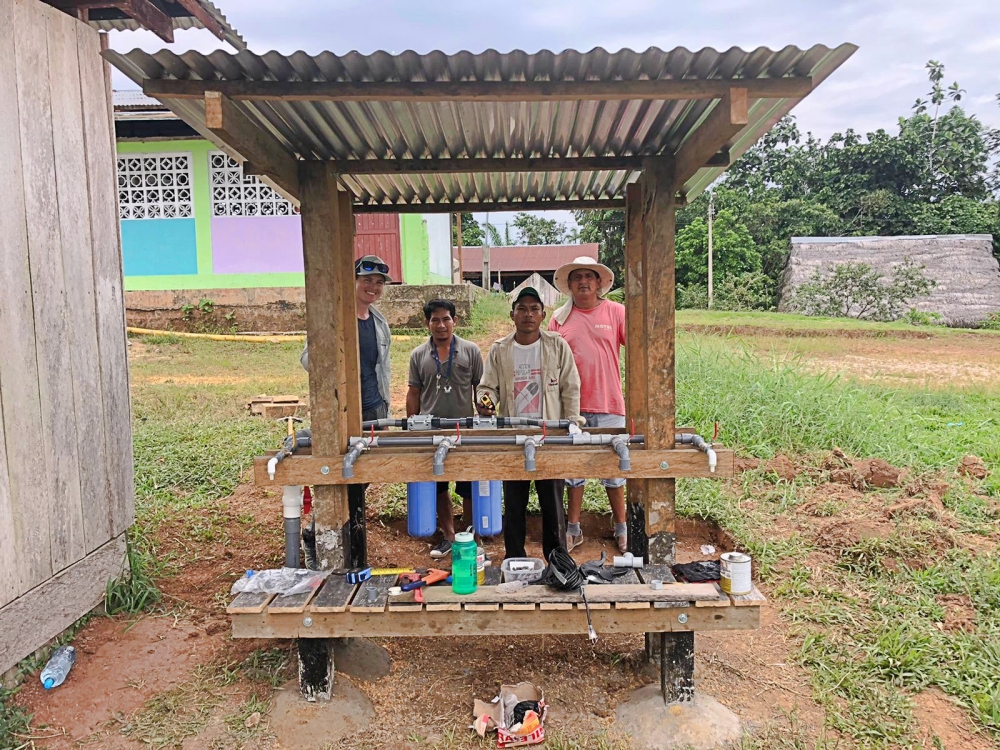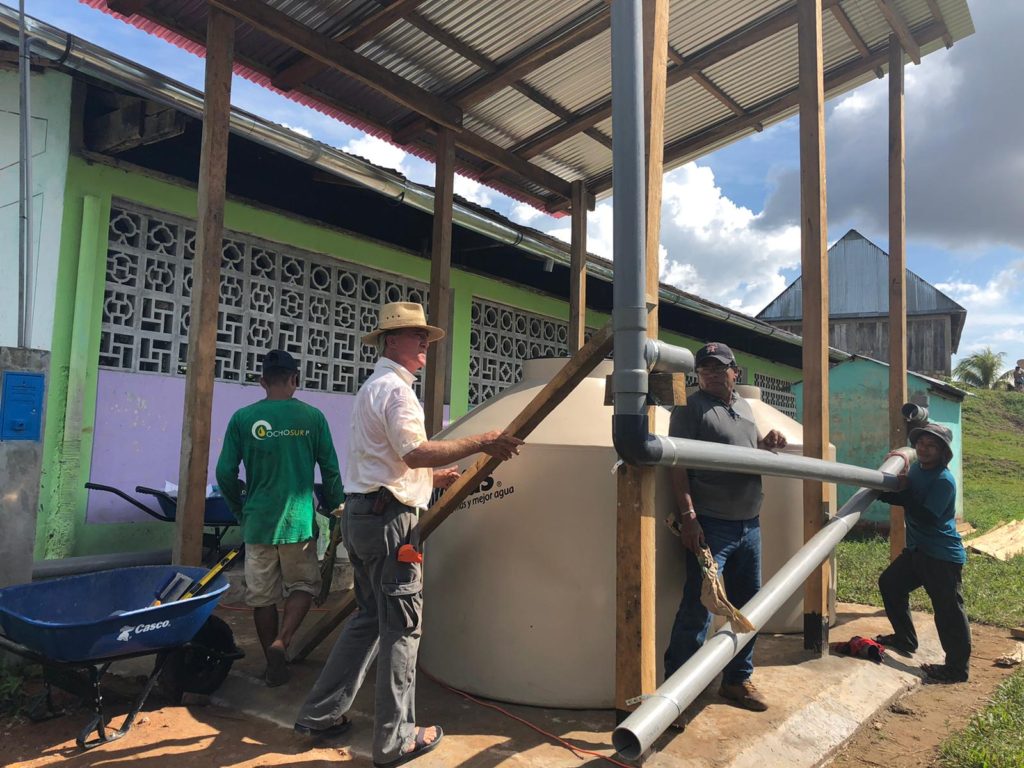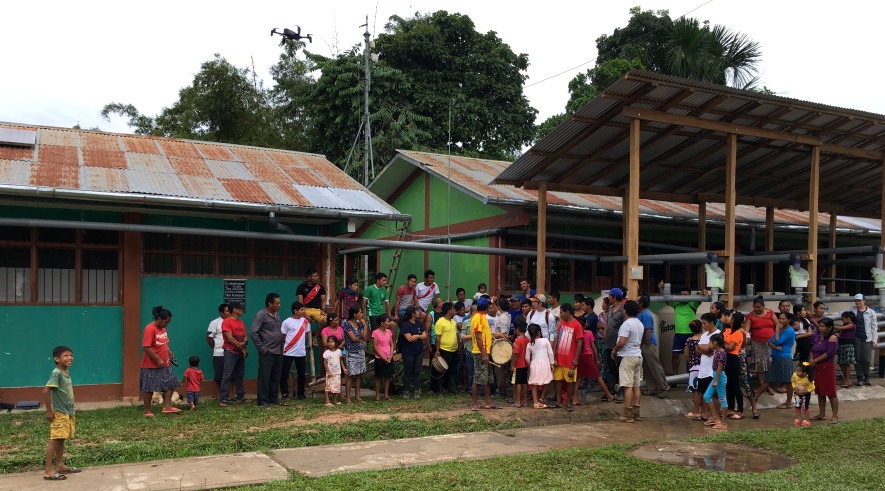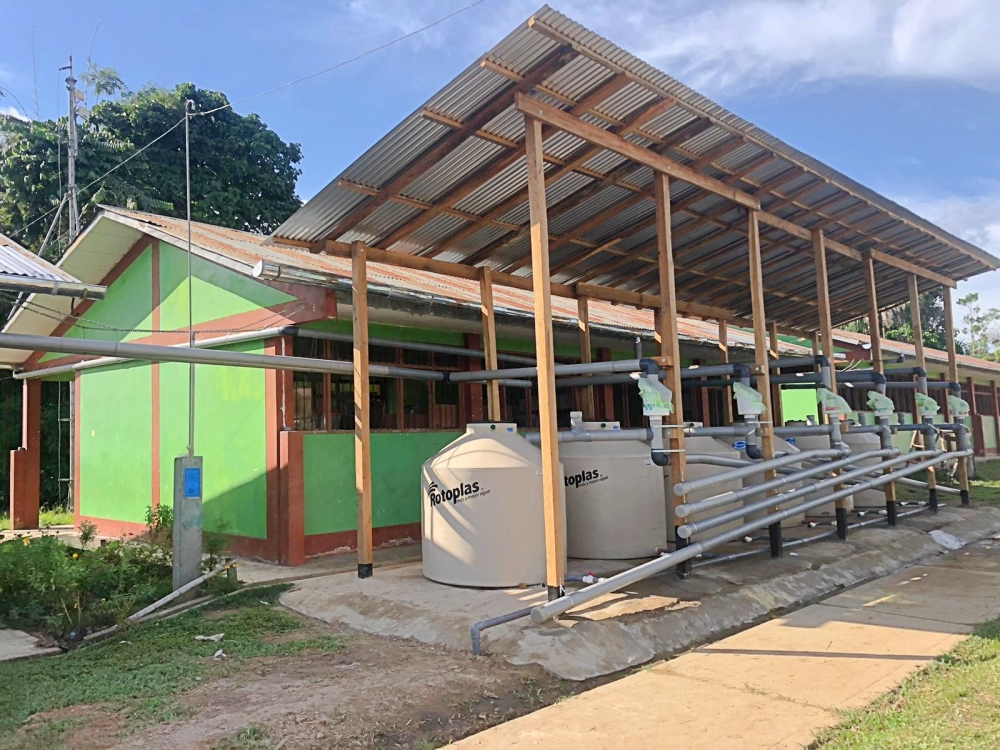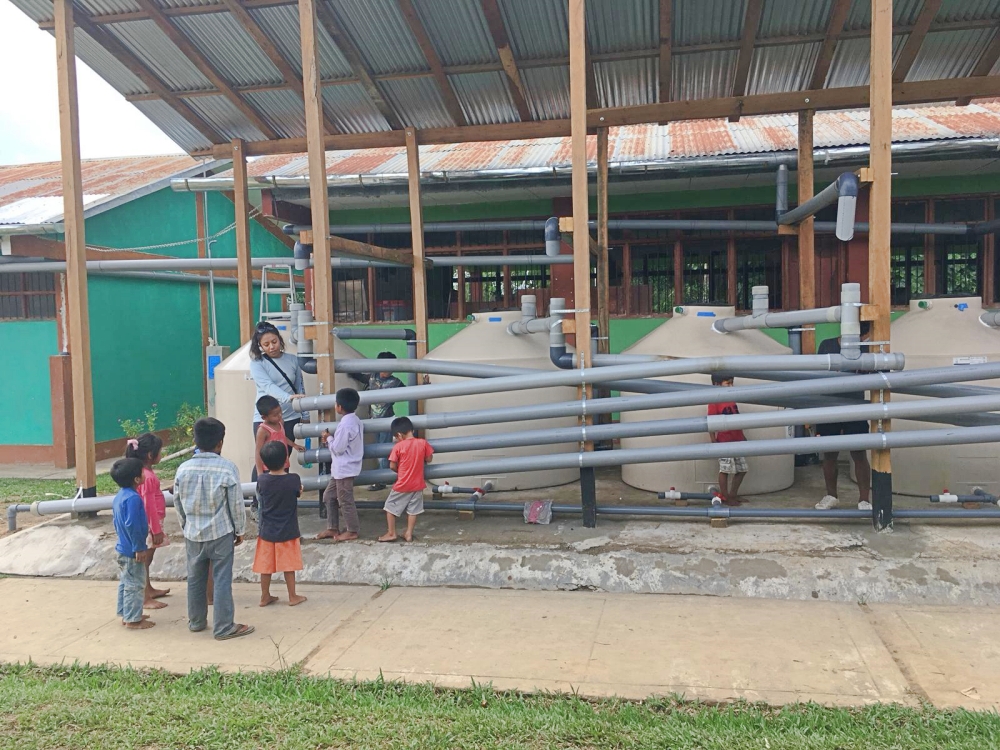LOCATIONS:
Payorote, San Francisco & Mariscal Castilla Communities, along the Amazon River and its two primary tributaries, the Marañón and Ucayali Rivers.
Maynas Province, District of Nauta, Peru (51 miles from Iquitos, Peru)
COMMUNITY DETAILS:
Payorote, San Francisco and Mariscal Castilla are small communities in the region surrounding the town of Nauta. This region offers unique challenges due to their remote locations of the villages on the banks of the Amazon River and aging populations with minimal-to-no income. In addition to receiving 112+ inches of rain annually, every year these communities must deal with a 35-foot rise & fall of the Amazon River, often leaving the communities under 3-5 feet of floodwaters for months at a time. As a result of this same flooding, communities lose tens of meters of riverbank to erosion every year and, consequently, are constantly relocating homes away from river’s edge.
These communities have always lacked access to any kind of clean water. They practice outside defecation and have marginal hygiene practices. These deficits combine to cause some of the highest incidence of water-related illness, including diarrhea and parasitic infection, in this part of the world.
Our Peru Program is working with the villagers of these communities and our local Non-Governmental Organization (NGO) partner Amazon Promise, which has worked in this region of Peru for 20+ years, for construction and ongoing infrastructure maintenance. In addition to these partnerships, the Peru Program works with the Rotary Club of Galleria River Oaks, the Rotary Club of Houston, and the Peruvian Rotary Club Amanecer Loretano to affect permanent positive change in the lives of these very capable communities, as well own program volunteers.
PROGRAM SUMMARY:
This program’s primary goal is to affect positive change in community thinking and action regarding their access to, and ownership of, clean drinking water, the creation of effective and dignified sanitation, and the adoption of effective hygiene practices that will improve health, childhood learning ability, and the robust viability of the community.
PROGRAM ADOPTION DATE:
July 2015
PROJECT STATUSES:
Our current projects are addressing some exciting new topics. Would you like to help? Anyone is welcome to join!
Active – Payorote, Peru – Floating Dock Project (Targeted for 2021)
One of our active projects has been the design and installation of a first ever floating dock for the community of Payorote made out of material more sustainable than hard-to-find balsa wood, with the additional design consideration that the dock will have to cope with an ever-changing river bank locations and heights as a result of the annual river elevation fluctuations of 35+ feet!
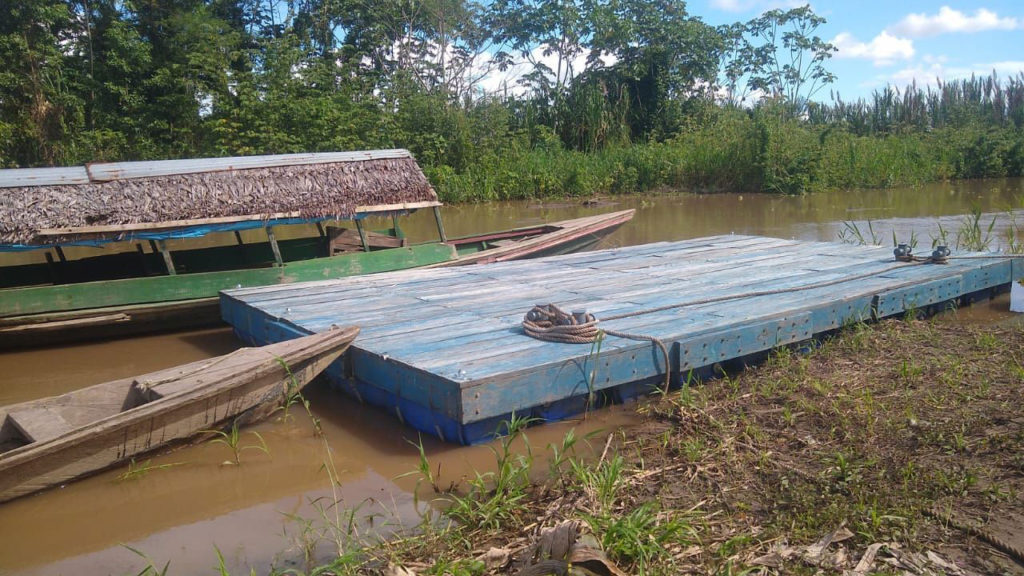
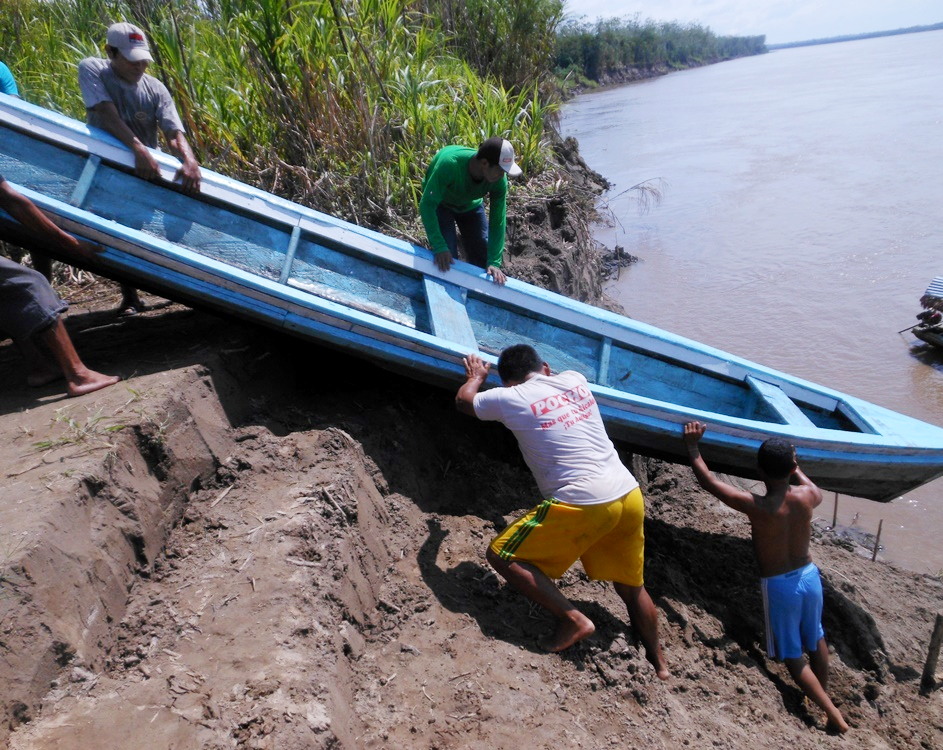
Active – Payorote, Peru – Latrine Sanitation Project (Targeted for 2021)
Our other active project is to co-create universally adopted, affordable, and easily-sustained latrines for the community of Payorote. These latrines will have to function under 3+ feet of flood water for months at a time as well as in dry conditions, all the while sustaining a target effluent quality that is clean enough to safely swim in. Swimming-in and dealing with latrine-contaminated water might sound foreign and disgusting to you, but it is a fact of life for nearly 40% of the world’s population! To our knowledge, our latrine design will be a global first – if we succeed.
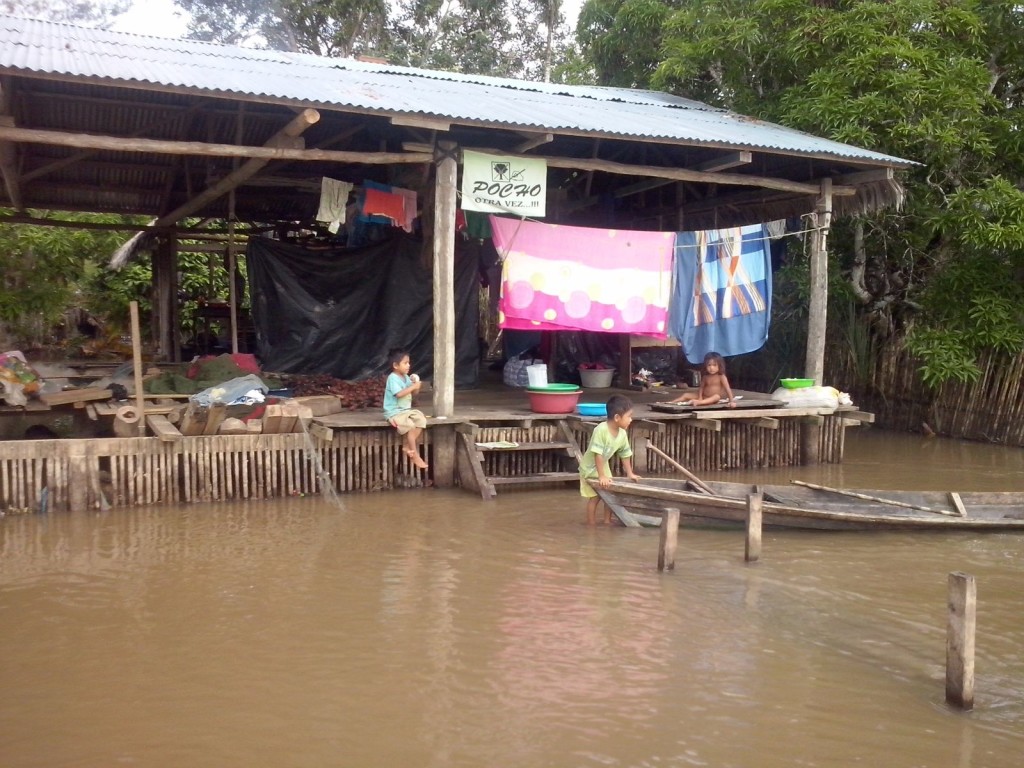
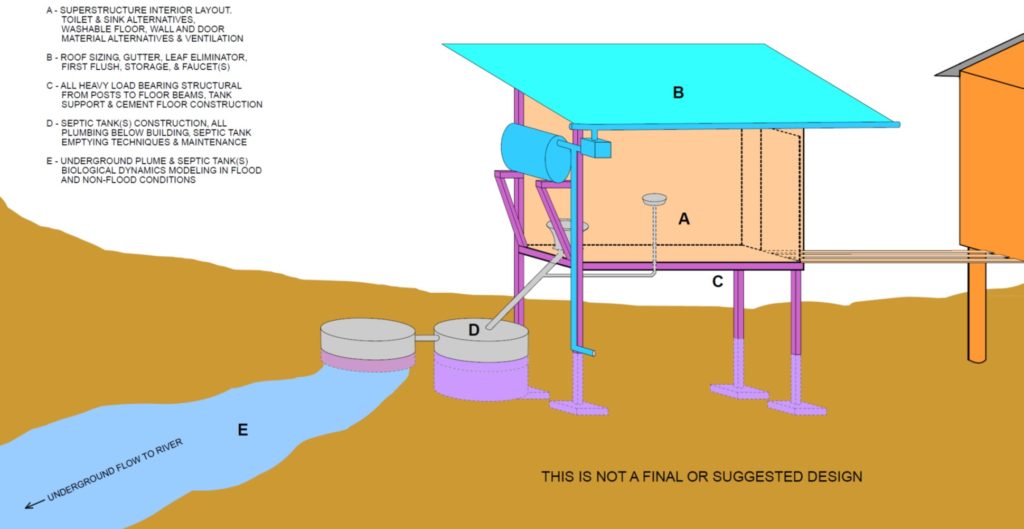
COMPLETED PROJECTS (ACTIVE MONITORING PHASE)
Monitoring – Payorote, Peru – Rain Catchment Project (2016)
Impact: Clean drinking water access for 250 people
After 8+ years of operation, the rainwater harvesting system in Payorote is still in good function, receiving regular maintenance from the community in an effort to sustain their reliable source for clean drinking water. The community has reported a decrease in water-related illnesses and expressed a continued desire for improving their quality of life.
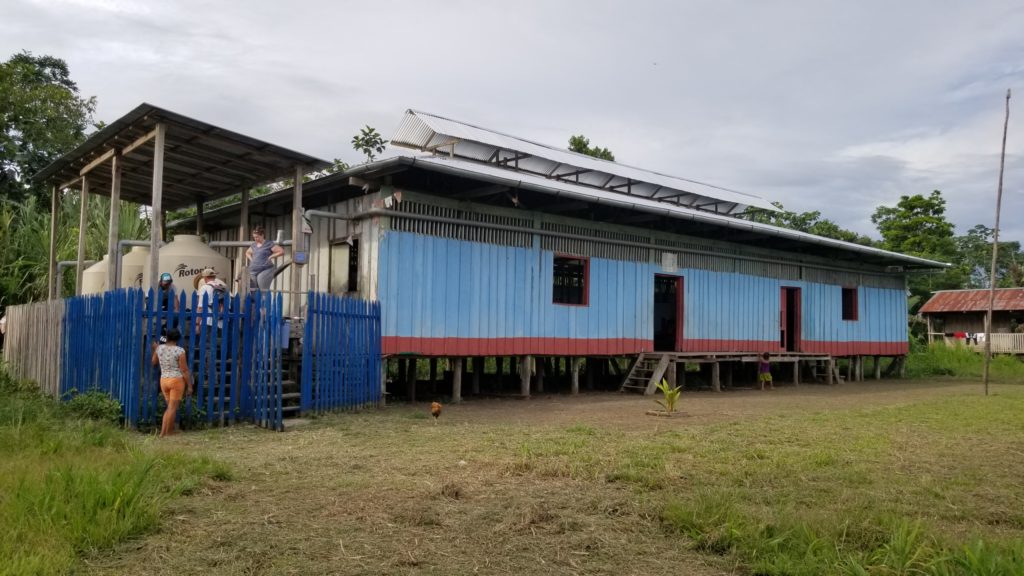
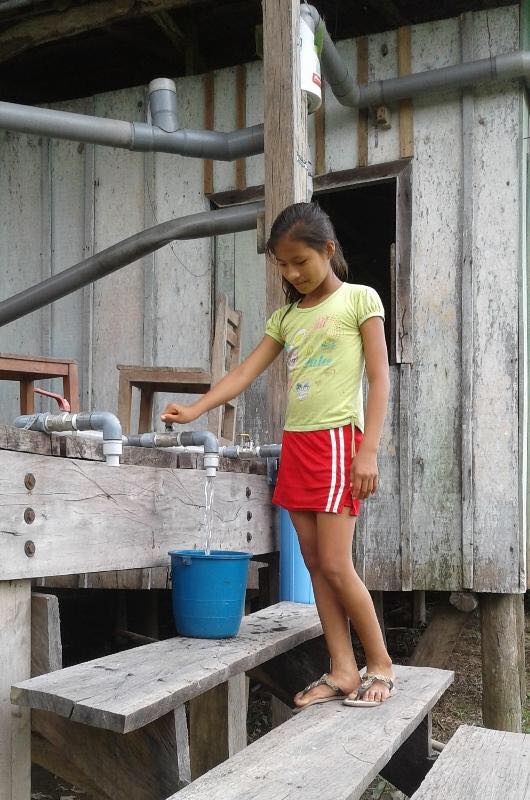
Monitoring – Mariscal Castilla, Peru – Rain Catchment Project (2018)
Impact: Clean drinking water access for 186 people
The community of Mariscal Castilla is extremely excited to have its first ever rainwater harvesting system to supply their needs for clean drinking water. This village previously relied on the pink dolphin-visited, but very dirty, Ucayali River at the head of the Amazon River for its drinking water until they sought out the Peru Program for a better solution.
In the fall of 2018 the Peru Program helped the villagers install a gravity-fed rainwater catchment system that literally required the raising of the roof of their community building.
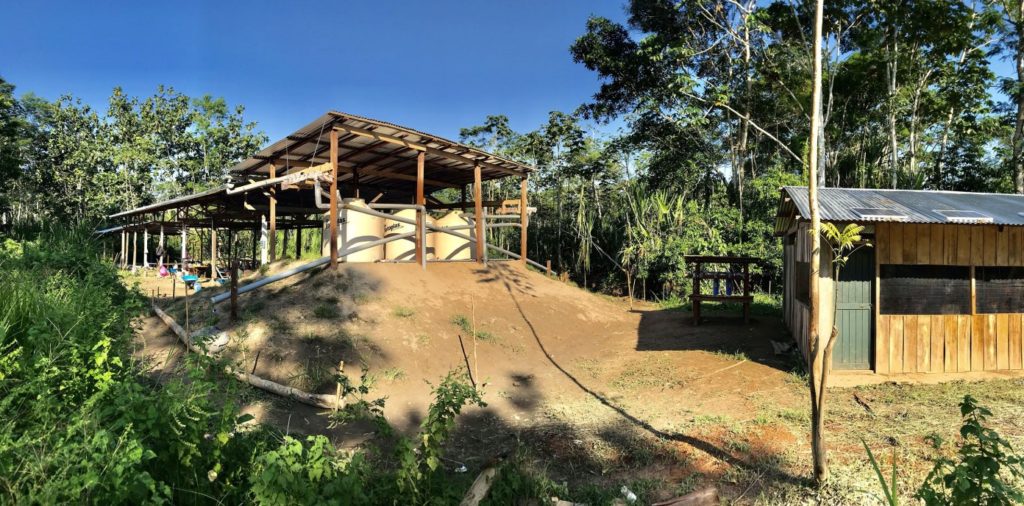
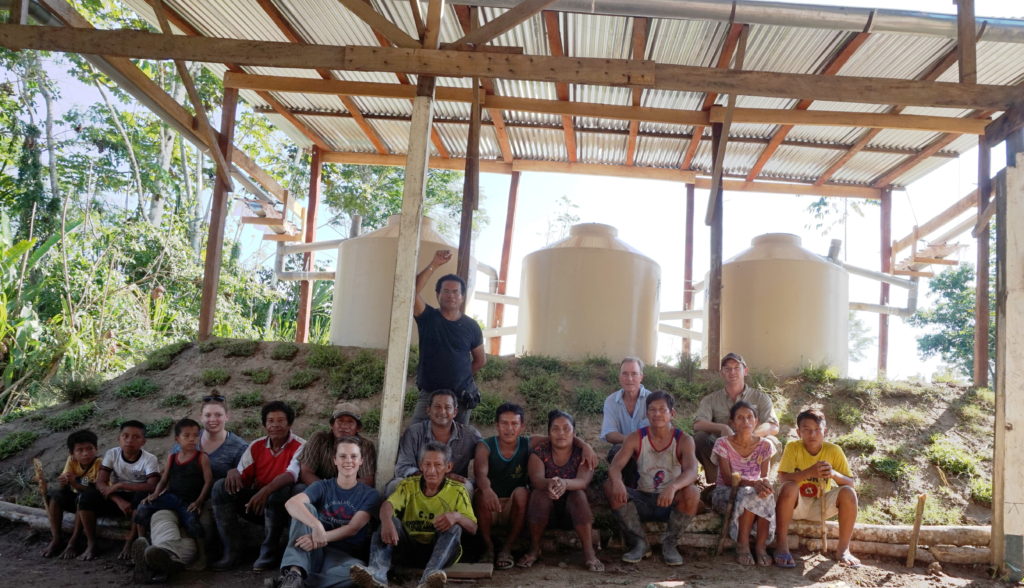
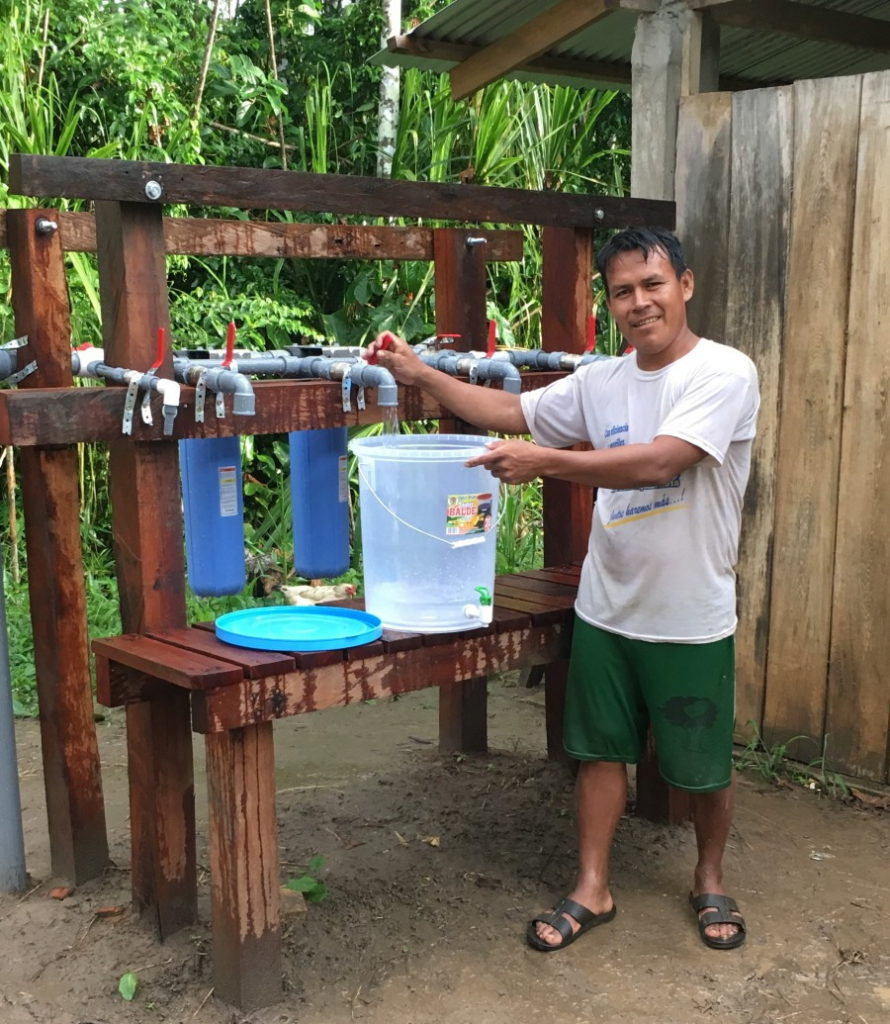
Monitoring – Mariscal Castilla, Peru – Water Distribution Project (2019)
In 2019 the team returned to Mariscal Castilla to install a 1000-foot long water distribution system to ease the burden of fetching the clean water. A monitoring trip in the fall of 2020 indicated the community is doing a splendid job taking care of the rainwater catchment & distribution infrastructure and financing all of the repairs on their own after two years of service.
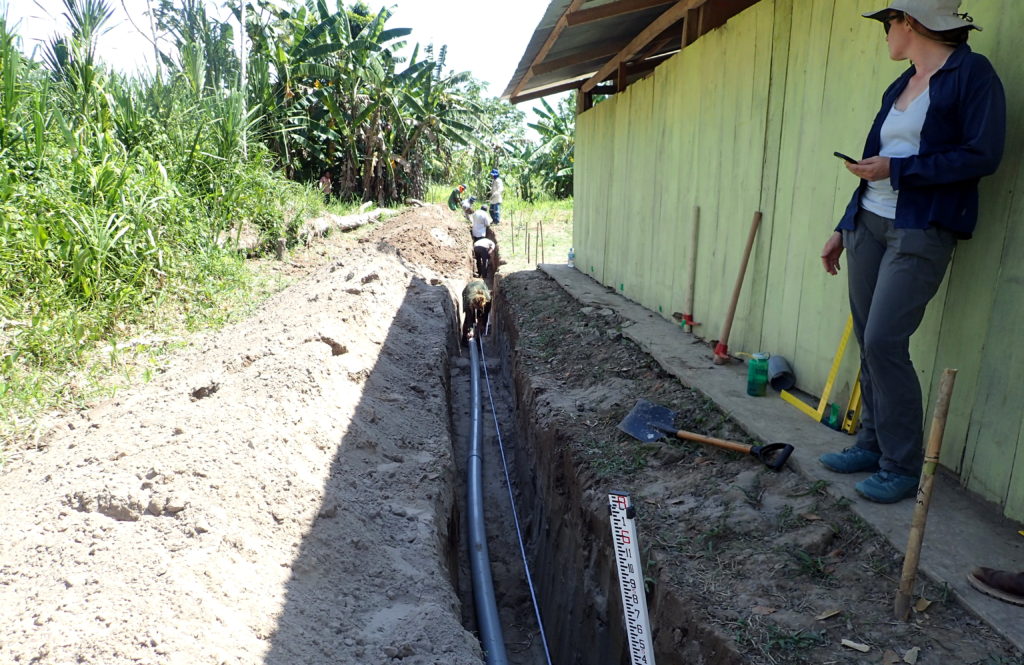
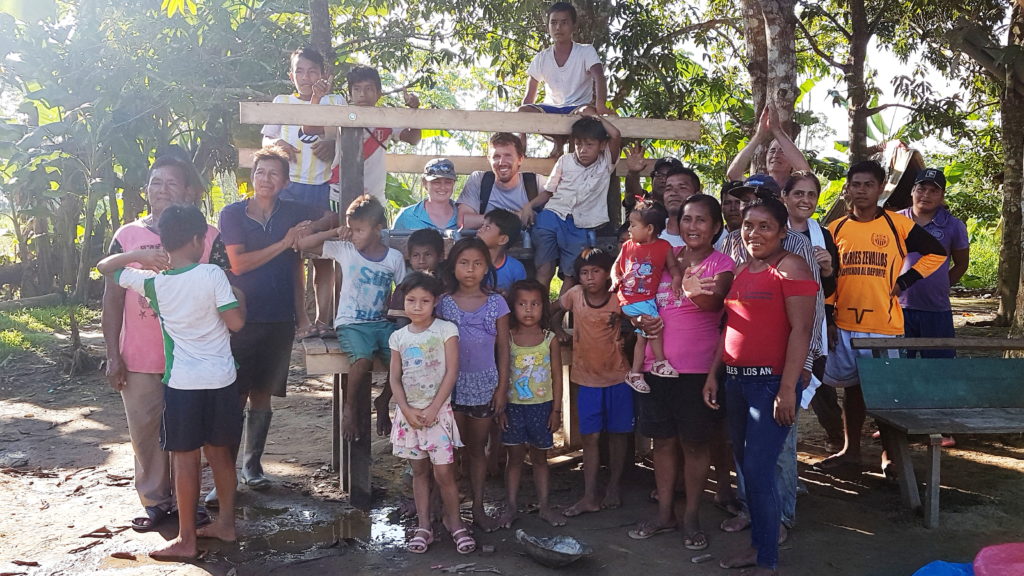
Monitoring – San Francisco, Peru – Rain Catchment Project (2020)
Impact: Clean drinking water access for 400 people
The community of San Francisco was assessed in 2018 during the Mariscal Castilla rain catchment Phase 1 Implementation. The community relied on a dirty creek and a majestic, but highly-contaminated Marañón River for drinking water. The Peru Program designed and helped the villagers install two gravity-fed rainwater harvesting systems to supply clean, chlorinated drinking water at two sites in this nearly 1.5 km-long remote community. During this installation the team introduced a new technology in this area of Peru by way of using cement-stabilized soil for the system foundations.
A follow-up monitoring visit was made 9 months after the installation, at which time we found the villagers taking excellent care of the facilities and collecting community water fees to sustain the system on their own.
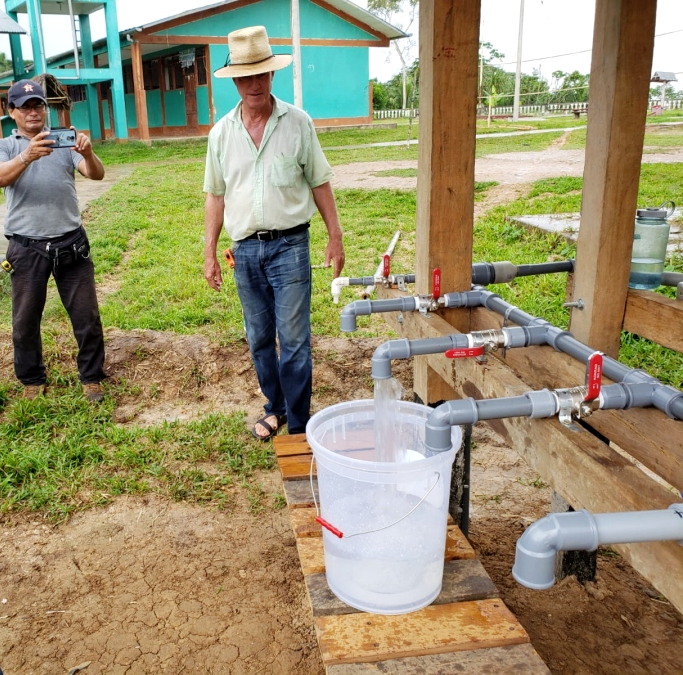
TEAM LEADS:
- Mark Illian – Program Lead and Mentor
- Philip Washington – Payorote Latrine Sanitation Project Lead
- Jose Valles, In-country Liaison (Amazon Promise)
We are actively looking for support on all fronts. We need volunteers
(engineers and non-engineers, alike) to help, interested donors, and supporters to help us spread the word.
Please contact us using the button below to find out how you can help us provide the Peruvian Amazon communities with a sustainable source of clean water! Additionally, you can visit our EWB Peru Project Facebook Group, our team LinkedIn, or follow us on Instagram for updates!

